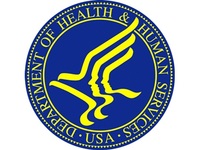Government Response

Historically HIV/AIDS has been stigmatized or stereotyped as a virus that targeted gay cisgender men, and drug users leaving African-American women and ultimately African-American transgender women out of the conversation. With transgender women’s voices slowly gaining a platform, The United States Government in recent times has been including transgender women into the narrative, calling for more government response in the fight against HIV/AIDS. There has always been a lack of programs and thanks to advocacy there has been administrative attention brought to transgender women’s peril. Their intersectionality of being African American, transgender, and positive for HIV/AIDS increases their vulnerability in terms of health risks and that vulnerability going unnoticed or unheard. More advocates, allies, and medical professionals are speaking up for African American transgender women to get a fair fight in the pandemic. The first grievance was and is that even in current times there are still not a lot of medical providers, even those who have lesbian and gay patients, that are well versed in treatment of transgender patients. Considering that African American transgender women lead in HIV/AIDS diagnosis, it is important that social and economic circumstance does not prohibit them from access to proper medical and mental health care. Discriminatory practices is also another hindrance in their plight, with programs such as the Affordable care Act, CDC intervention, or youth focus programs, being more than necessary, however still fragile. This section is dedicated to the response both positive and adverse of the United States Government.
Strategies and programs developed in response to lack of agency for African American transgender women.
Historically African American transgender women have been the most excluded from the HIV/AIDS conversation, or included through misidentification as gay men. Through advocacy and campaigning, transgender women began to gain the attention of the Obama Administration, sparking government intervention making treatment and programs more inclusive. This is the Special Projects of National Significances response to lack of agencies and programs excluding transgender women from the narrative, specifically incorporating funding from Secretary’s Minority AIDS Initiative Fund, HRSA’s HIV/AIDS Bureau (HAB) in order to better support Transgender Women of Color.
Huffington post discusses the systemic oppression that African American cisgender, and transgender women have faced since the HIV/AIDs pandemic, and will continue to face with the repeal of the Affordable Care Act.
The repeal of the Affordable Care Act is going to have a lot of detrimental affects on disenfranchised people with serious illnesses such as HIV/AIDS, that will be recognized as pre existing conditions. Due to classification of HIV/AIDS that will then make those diagnosed ineligible for coverage by medical insurance providers that programs Medicaid and the ACA cover. Programs like the ACA also make treatments available to impoverished patients, who on their own can not afford treatment. Black transgender women fit this narrative as their intersectionality of race and class make them victim due to lack of accessibility to programs and expensive treatments created to provide those suffering with HIV/AIDS. This article calls out the call to repeal the ACA.
Government response to the inadequacies in health insurance coverage for transgender women.
A government website dealing with questions about being HIV and the Affordable Care Act (ACA). This website answers questions about medications, testings/screenings and dealing with insurance companies. This is a helpful website because even though it isn't necessarily about just the transgender community, it answers questions that need answers to once an individual receives a positive HIV status report.
This blog post addresses the Federal response to HIV/AIDs in concern to transgender women, recognizing African-American transgender women as a group disproportionately impacted by the virus.
The response of the transgender community and their consistent push for government intervention have not gone unheard. This in turn has placed more transgender advocates and allies in the political conversation, resulting in the government responding by implementing more programs, and more White House presence per the Obama Administration as explained by this blog post.





